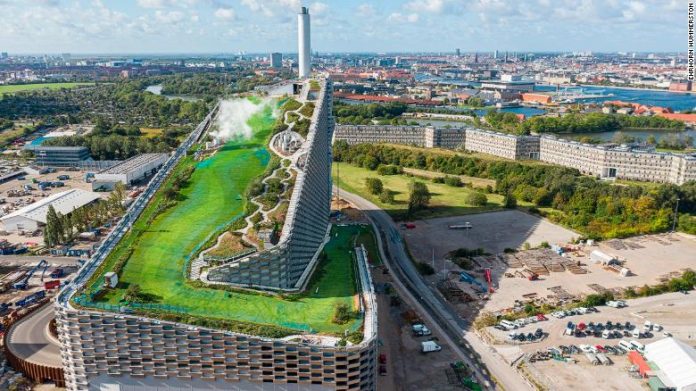Countries resolve to using technology to solve trash problems
The world has a huge waste problem. Two billion tons of municipal solid waste is generated globally per year, according to the World Bank equivalent to the weight of the Great Pyramid of Giza, in trash, every single day.
As urban populations continue to grow, some cities are struggling to cope. Many are turning to new technologies for cost-effective solutions to clean up waste.
The global waste management market is booming, as a result, expected to reach $530 billion by 2025 from $331 billion in 2017, according to a report by Allied Market Research.
Waste that goes uncollected can lead to blocked drains, flooding and the spread of waterborne diseases. Organic matter dumped in landfills where it lacks the air to decompose quickly generates methane gas, accelerating climate change.
Also Read: Texas chemical plant blasts leads to evacuation order
Copenhagen, Denmark, recently opened its innovative waste-to-energy power plant, known as Copenhill or Amager Bakke, which is topped with an artificial ski slope.
The plant, which burns waste instead of fossil fuels, is capable of converting 450,000 tons of trash into energy annually, delivering electricity to 30,000 households and heating to 72,000.
Though it still produces CO2 emissions from burning, the city plans to install a system to capture the carbon released by the incineration process, and then store the carbon or find a commercial use for it. By tapping an otherwise unused resource, it will also help the city move away from its dependence on fossil fuels.
“Instead of placing waste outside in a big landfill, we use the waste to produce energy for heating and electricity in the most efficient way currently available,” the Lord Mayor of Copenhagen Frank Jensen told CNN Business in an email.
“Efficient waste incineration supplies district heating for 99% of the buildings in Copenhagen, so we will eliminate the pollution from coal, oil and petroleum,” he adds, helping the capital meet its goal to become the world’s first carbon-neutral city by 2025.
Other cities are starting on a street level, using artificial intelligence and automation to sort recyclables or sensors to reduce the amount thrown away.
For instance, Singapore and Seoul, South Korea, have installed smart, solar-powered trash cans on their streets. Each is equipped with a compactor, enabling it to hold more trash. Once the bin is full, its sensors alert the waste collectors.
By 2050, 68% of the world’s population will live in urban areas, according to the UN, putting a strain on existing city infrastructure.

Do you have any news or article you would like us to publish? Kindly reach us via outreach@t4d.co.ke or howtodoafrica@gmail.com.




















